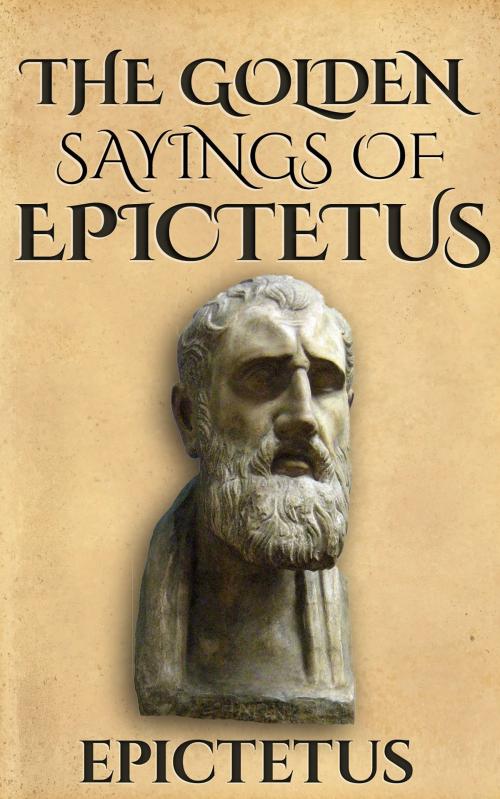The Golden Sayings of Epictetus
Nonfiction, Religion & Spirituality, Philosophy, Free Will & Determinism, Ancient, Ethics & Moral Philosophy| Author: | Epictetus | ISBN: | 1230000279881 |
| Publisher: | Enhanced E-Books | Publication: | November 13, 2014 |
| Imprint: | Language: | English |
| Author: | Epictetus |
| ISBN: | 1230000279881 |
| Publisher: | Enhanced E-Books |
| Publication: | November 13, 2014 |
| Imprint: | |
| Language: | English |
“How then do men act?”
The Golden Sayings of Epictetus is one of three key texts, along with the Meditations of Marcus Aurelius and Seneca’s Letters From A Stoic, from which we know the philosophy of Stoicism.
Epictetus (ca. 50–ca. 130 AD) primarily taught about the philosophy of happiness and virtue. To Epictetus, external happenings were determined by fate, and were therefore beyond human control. He believed that people could accept whatever happened to them in a calm and unemotional manner if they recognized that certain things were not under their control. Even though fate played a role in events, Epictetus still believed that individuals were responsible for their own actions.
Although he was born into slavery and endured a permanent physical disability, Epictetus maintained that all people are free to control their lives and to live in harmony with nature. We will always be happy, he argued, if we learn to desire that things should be exactly as they are.
This special edition also includes Fragments by Epictetus and an image gallery.
“How then do men act?”
The Golden Sayings of Epictetus is one of three key texts, along with the Meditations of Marcus Aurelius and Seneca’s Letters From A Stoic, from which we know the philosophy of Stoicism.
Epictetus (ca. 50–ca. 130 AD) primarily taught about the philosophy of happiness and virtue. To Epictetus, external happenings were determined by fate, and were therefore beyond human control. He believed that people could accept whatever happened to them in a calm and unemotional manner if they recognized that certain things were not under their control. Even though fate played a role in events, Epictetus still believed that individuals were responsible for their own actions.
Although he was born into slavery and endured a permanent physical disability, Epictetus maintained that all people are free to control their lives and to live in harmony with nature. We will always be happy, he argued, if we learn to desire that things should be exactly as they are.
This special edition also includes Fragments by Epictetus and an image gallery.















